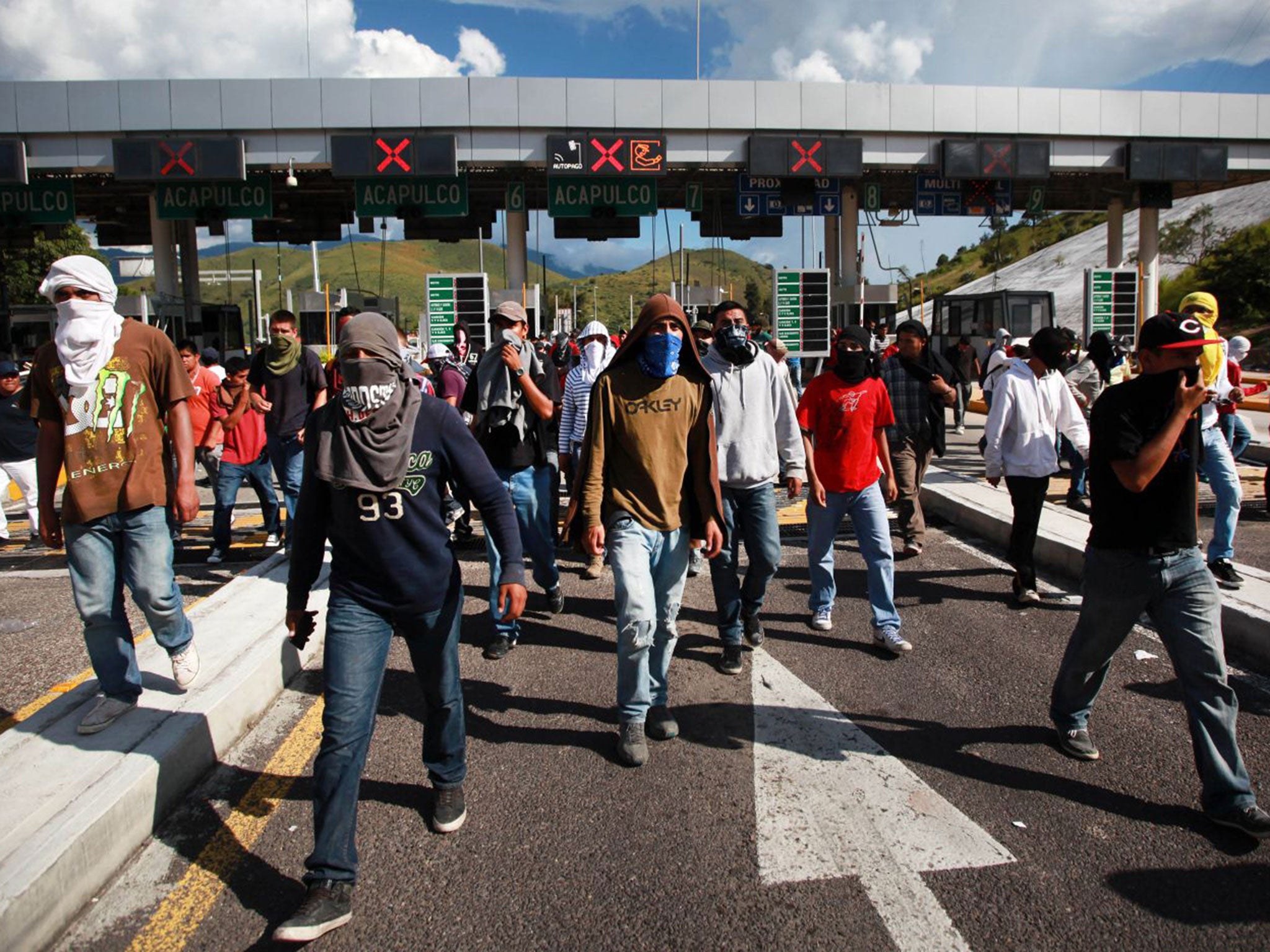Mexico police suspected over deaths of 28 people found mutilated in secret grave – close to where students disappeared last week
State police and prosecutors have been investigating the Iguala city police for misconduct during a series of violent incidents

Twenty-eight bodies have been found in unmarked graves outside a city in Mexico where police clashed with student protesters a week ago, but the remains are too damaged for immediate identification.
Guerrero state prosecutor Inaky Blanco said he could not say whether any of the dead could be some of the 43 college students reported missing after the violent confrontation in Iguala, 120 miles south of Mexico City. He said genetic testing of the remains could take two weeks to two months.
Mr Blanco said one of the people detained in the case had told investigators that 17 students were taken to the grave site on the outskirts of Iguala and killed there. But he stressed that investigators had not confirmed the person’s story.
“As long as the identity of the cadavers has not been resolved we will continue the search” for the missing students, he said.
State police and prosecutors have been investigating the Iguala city police for misconduct during a series of violent incidents last weekend that resulted in six shooting deaths and more than two dozen people injured. Investigators said video showed police taking away an undetermined number of student protesters.
Authorities have presented charges against 29 people in the case, including 22 police officers detained soon after the violence. Three of the suspects are fugitives, including Iguala’s police chief.
Mr Blanco said they are still investigating the motive for the crime, adding that some of the police have connections to a local drug cartel.
He said that some of those arrested provided clues that led investigators to the six unmarked burial pits on an isolated hillside about a mile from the nearest road. The bodies had been put in the pits on top of branches and tree trunks, which were doused with a flammable substance such as petrol and set on fire.
Vidulfo Rosales, a lawyer helping families of the missing students, said relatives of 37 of the young people already had provided DNA samples that will be used to determine if the recovered remains belong to any of the students.
As investigators worked at the grave site, up to 2,000 protesters blocked a main highway in the state capital of Chilpancingo demanding justice.
“You took them alive, we want them returned alive,” read a huge banner hung across the road linking Mexico City and Acapulco.
The mother of one of the missing youths said her son, 17-year-old Luis Angel Abarca Carrillo, had enrolled in the Ayotzinapa teachers college attended by the missing students in order to get ahead in life and not be a poor farmer like his brothers. “But now look what they did to him, he hasn’t reappeared,” said Margarita Carrillo, 60.
Mexico’s National Human Rights Commission opened its own investigation into the case for possible “serious human rights abuses”, such as extra-judicial executions and forced disappearances by Iguala city police.
The commission said in a statement that it had warned about the “delicate” situation in Guerrero, a southern state where poverty feeds social unrest and drug gangs clash over territory.
Anger over the discovery of the graves exploded on Saturday night when a group of young people from the Ayotzinapa teachers college protested outside the governor’s residence in Chilpancingo. They threw Molotov cocktails and overturned a car after state officials told them they would not be allowed to travel to the graves to determine if the bodies are those of their missing classmates.
Like many other schools in Mexico’s “rural teachers college” system, Ayotzinapa is known for militant and radical protests.
AP
Join our commenting forum
Join thought-provoking conversations, follow other Independent readers and see their replies
Comments
Bookmark popover
Removed from bookmarks